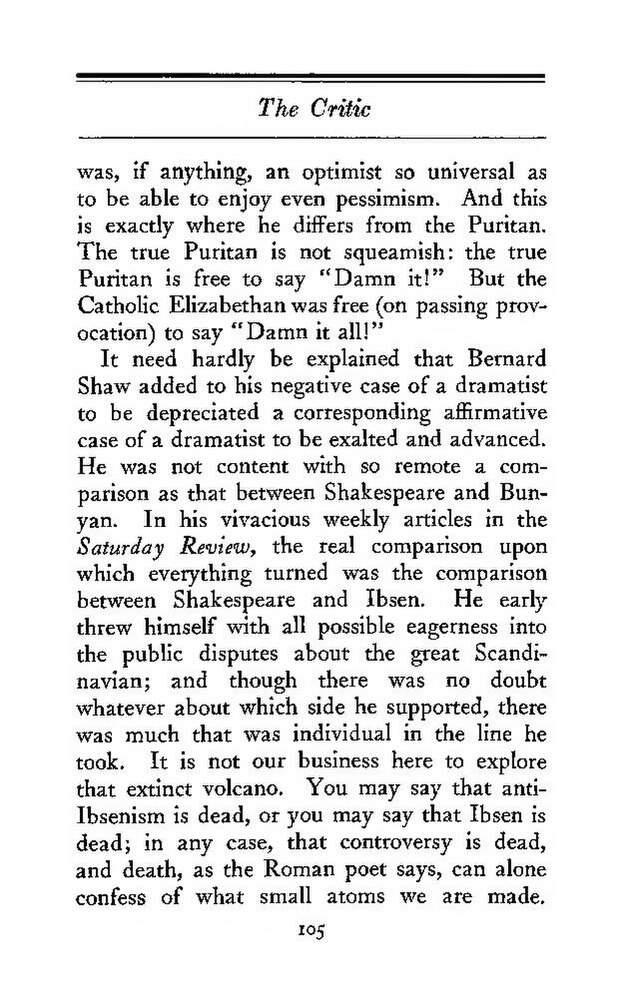was, if anything, an optimist so universal as to be able to enjoy even pessimism. And this is exactly where he differs from the Puritan. The true Puritan is not squeamish: the true Puritan is free to say "Damn it!" But the Catholic Elizabethan was free (on passing provocation) to say "Damn it all!"
It need hardly be explained that Bernard Shaw added to his negative case of a dramatist to be depreciated a corresponding affirmative case of a dramatist to be exalted and advanced. He was not content with so remote a comparison as that between Shakespeare and Bunyan. In his vivacious weekly articles in the Saturday Review, the real comparison upon which everything turned was the comparison between Shakespeare and Ibsen. He early threw himself with all possible eagerness into the public disputes about the great Scandinavian; and though there was no doubt whatever about which side he supported, there was much that was individual in the line he took. It is not our business here to explore that extinct volcano. You may say that anti-Ibsenism is dead, or you may say that Ibsen is dead; in any case, that controversy is dead, and death, as the Roman poet says, can alone confess of what small atoms we are made.
105
